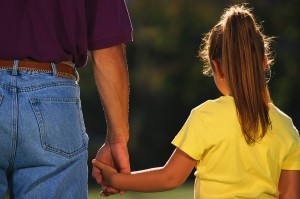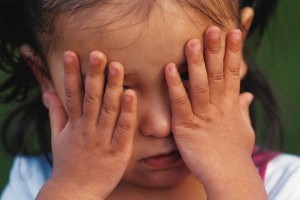Taking Your Child to a Children’s Counsellor
 As a children’s counsellor, I am often reminded of a quote from William Wordsworth. “The child is the father of man.” So goes the saying. Children develop their personalities even when they are very young. How they grow up – the qualities they will have as adults – are determined by how they are nurtured as children and also by their surroundings. A child’s mind is very sensitive and very active. Children are very observant. They notice everything that is happening around them. Therefore, it is very much necessary that the environment they grow up in be healthy and productive. The first school for a child is always the home and the first teachers are the parents. As parents, we lavish love and care on our children and try to lead by example so that we can teach our children good values in the hopes that they will also grow up to be good and caring individuals. Nonetheless, there is only so much we can regulate. We can’t always protect our children from getting hurt or from nerve-wracking circumstances.
As a children’s counsellor, I am often reminded of a quote from William Wordsworth. “The child is the father of man.” So goes the saying. Children develop their personalities even when they are very young. How they grow up – the qualities they will have as adults – are determined by how they are nurtured as children and also by their surroundings. A child’s mind is very sensitive and very active. Children are very observant. They notice everything that is happening around them. Therefore, it is very much necessary that the environment they grow up in be healthy and productive. The first school for a child is always the home and the first teachers are the parents. As parents, we lavish love and care on our children and try to lead by example so that we can teach our children good values in the hopes that they will also grow up to be good and caring individuals. Nonetheless, there is only so much we can regulate. We can’t always protect our children from getting hurt or from nerve-wracking circumstances.
The Need for Child Counselling
Children these days have to cope with trying situations that can range from stressful events to life-changing situations. The stress children face at school may be anxiety before a test, bullying or peer pressure. A child may have family problems such as the parents fighting or getting divorced, or he or she has to deal with the death of a loved one. Unexpected distressing situations brought upon children could make them sad or bewildered and at times unable to cope. These could lead to alterations in mood or behaviour with a change in the child’s sleep and appetite, and declining interest in school and normal day-to-day activities.
It is said that children are resilient, which is true. But no child ever goes through childhood without scars. No problem is minor. A sensitive child, for instance, dreads going to a new school for fear of rejection. This lack of self-confidence, if left unaddressed, could continue over to adulthood.
Determining if Your Child Needs Counselling

Constantly Sad
Excessive anger, aggression, constant anxiety or tearfulness, withdrawal, or listlessness in children are all causes for concern to parents. Parents often tell me that they are unsure about when or if they really need to bring their child in for counselling or to see a psychologist. How to find out if the change is just a “phase” – a part of growing up – or if it is in fact indicative of some emotional or psychological problem that needs the help of a child psychologist?
Here are some pointers:
– Delay in some important development milestones like language or toilet training.
– Learning problems
– Change in appetite or sleep pattern
– Change in behaviour with display of sudden anger, throwing tantrums, or acting out
– Bedwetting after mastering this skill (reverting to it)
– Constantly tearful or sad
– Constantly complaining of stomach aches or headaches, even after the paediatrician has given a clean chit of health
– Dropping grades, especially in a child who had previously been performing well
– Playing truant from school or being late always
– Getting into fights often
– Bullying other children or being the victim of a bully
– Harming animals
– Preferring to be left alone
– Signs of substance abuse in adolescents
– Divorce of parents with/without custody problems
– Death in the family or death of a friend
– Managing cancer or other life threatening long illness
– After a traumatic occurrence
Taking your child to a children’s counsellor is suggested if you observe that your ward has one or more of the aforementioned issues – though I must mention that the above list is in no way exhaustive. While some issues require longer duration in therapy, most problems can be promptly resolved by early determination and intervention by the therapist. Consequently, if you notice a change in the behaviour of your child, it is best that you seek the help of a children’s counsellor as early as possible to resolve the problem quickly.
Children’s Counsellors and How They Work
There are several different approaches that a children’s counsellor uses depending on the nature of the child’s problem. Here at the Centre for Emotion Focused Practice, PEEFT (Process Experiential Emotion Focused Therapy) is the treatment of choice. This methodology is based on the principle that emotions influence psychological, cognitive, behavioural, biological and neurochemical system functioning. The child psychologist helps the child or adolescent to identify and explore experiences from an emotional standpoint for an effective and long-lasting change. This method is also inclusive of Cognitive Behaviour Therapy, which is used for examining the child’s feelings and behaviours. The child is taught that harmful thoughts influence negative behaviour. The child is then helped to frame more positive mentations.
Play therapy is an important creative and client-centred tool that is used by the children’s counsellors here at the centre. This makes the session interactive for the child and ensures his or her cooperation. The children’s counsellors do not restrict themselves to one particular way of play therapy. Here, the child determines what her or she wants to do and the child psychologist uses that method to work with the child. These methods may involve the use of toys, blocks, puppets and dolls, sand trays, art counselling, and so on.
Family therapy is also used. Here, the child or adolescent together with his parents and other members of the family work with the child psychologist. We also incorporate group therapy where the children can share their experiences with other kids in the presence of one or more child psychologists. This form of therapy is particularly beneficial for improving peer interactions and developing social skills.
No Stigma in Seeking Child Counselling
There is a misconception that a children’s counsellor or a child psychologist is only required for treating children with mental illnesses. This notion is incorrect. To quote my mother, “I know my child the best!” Our blog article, “Child Psychology – Raising Children,” explains how we all use child psychology in our everyday life. Every parent is a “psychologist” as far as their child is concerned and is the first to glean that the child has a problem. In just the same way, a child psychologist treats more than mental illnesses. He or she can also counsel a child and find out what is wrong.
What is even more worrying is that there is a stigma attached to “mental” illnesses. Many parents shy away from seeking early intervention due to this negative stereotyping. In fact, many parents whose children I have counselled admitted later that they were worried that this might mean there is something “amiss” with the child. Good for them that they overcame this fear and decided to seek help for their child. Many teenagers too are resistant to the idea of therapy. They feel that there is something shameful about it – that they will be tagged as “crazy” if someone finds out that they are in therapy – and they are generally fearful of rejection.
There is a distorted view of mental illness in the majority of people, though mental problems are really common. According to the National Survey of Mental Health and Wellbeing, almost half the population of Australia experience a mental problem at some point in their life. We have all at some time or the other felt extremely stressed out, unreasonably anxious, angry or depressed. Some of us have even felt overwhelmed or felt that this is the end and we can’t go on anymore… These are all mental problems that we have overcome and there is no need to feel ashamed about it. We all need to work to remove the stigma attached to seeking psychiatric help. Taking your child to a children’s counsellor is akin to taking him or her to a medical practitioner for treating a fever – you are just getting help for something that needs treatment.
Child Practitioners at the Centre
Please visit the practitioners’ page to know more about the child practitioners at the centre. To get an appointment or to make enquiries, please call (03) 9820-5577.
More Articles on Children
- Happy Childhood for a Healthy Heart in Adulthood
- Child Psychology – Raising Children
- Play as a Tool for Learning
- How to Support Children through Divorce
- Learning Disabilities
- How Can We Improve Intelligence
- Bullying and Depression in Children
- Supporting Children at School and Protecting Them from Bullying




